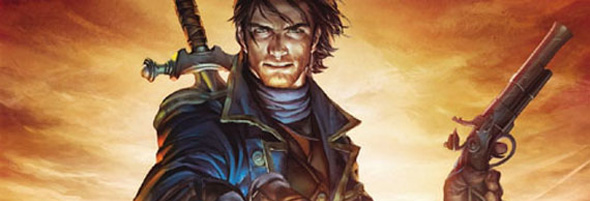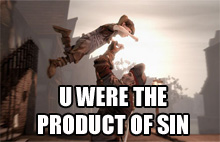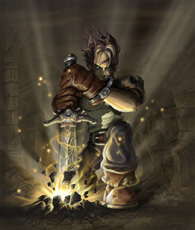
Remember Milo and Kate, the infamous tech demo from the original Kinect announcement? You can be sure that everyone who worked at Lionhead under Peter Molyneux does. Over at Polygon, Matt Leone has a fascinating in-depth article about the long development history and DNA of the project. It turns out that Milo has roots in a failed project called Dmitri that began all the way back in 2001. Milo is still a sore subject at Lionhead, so a lot of the quotes are off the record, but the article is definitely still worth a read if you’re interested in some of the behind-the-scenes goings on at a game developer.
Molyneux definitely has a long, strange history in game development; in the early years, before Lionhead and Microsoft, it seemed like he could do no wrong. I never played Black and White or any of his early games like Populous, but I remember people raving about them at the time. At Lionhead, Molyneux became known for games like Fable, which over-promised and under-delivered but still sold well enough to produce sequels. That tendency towards over-promising weird, ambitious gameplay mechanics eventually became the inspiration for parody. However, I do think there is something admirable in Molyneux’s desire to find new ways to approach games; I just get the impression that never meshed very well with the business concerns of a large corporation like Microsoft or with the realities of the modern-day console development cycle.
Have any of you ever played Molyneux’s early work? Are you looking forward to whatever crazy idea he comes up with next? Let us know in the comments!



 Fable 2 was OK, for the most part, but it wasn’t perfect. Like all games helmed by Peter Molyneux, it over-promised and under-delivered. That’s not a shot against the long-time developer, but it’s a sad fact that most ambitious projects get crushed down by the harsh realities of development. The difference with Fable 2, though, was the astounding number of bugs that had to be squashed before the game game out. According to a
Fable 2 was OK, for the most part, but it wasn’t perfect. Like all games helmed by Peter Molyneux, it over-promised and under-delivered. That’s not a shot against the long-time developer, but it’s a sad fact that most ambitious projects get crushed down by the harsh realities of development. The difference with Fable 2, though, was the astounding number of bugs that had to be squashed before the game game out. According to a 
 Peter Molyneux is a nice guy. He created The Movies, Black & White and Fable after all. And those were nice games. Molyneux is so nice, in point of fact, that he has saved game reviewers the time and effort required to review his upcoming game Fable II by reviewing it himself.
Peter Molyneux is a nice guy. He created The Movies, Black & White and Fable after all. And those were nice games. Molyneux is so nice, in point of fact, that he has saved game reviewers the time and effort required to review his upcoming game Fable II by reviewing it himself.